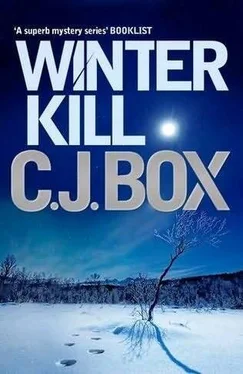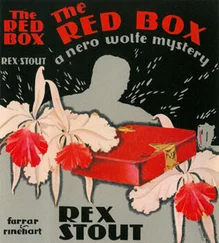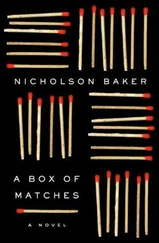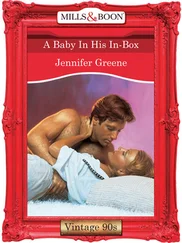Clem told April to shut up, and Jeannie backhanded him across the mouth. Clem glared at Jeannie, then went outside for a while. When he came back, he was half-drunk and docile, and April was finally sleeping.
Late that night, from inside a heavy black box under the base of a tree near Battle Mountain, there was a dull click. The click was so faint that it could not have been heard beyond a few feet away. Through the snow, two amber lights now glowed, and a digital tape began to spin. Heavy, double-insulated electrical wires crawled up from the box through the snow and were stapled fast on the trunk of the tree. A hundred feet away and twenty-four feet in the air, the two speakers crackled to life. The mountain silence yielded to a swinging back beat, tinny horns, and a young Wayne Newton singing:
Danke schoen, darling,
Danke schoen,
Thank you for walks down Lover’s Lane…
Inside one of the ice-encrusted trailers within the compound, Jeannie Keeley sat bolt upright in her bed. She listened, and realized that the song was not part of her dream. She looked through the gloom toward the rear of the trailer where April slept. April’s bed was of a thin fold-down design made of plywood veneer. When the girl tossed or turned, the bed creaked. It was creaking now.
The song finally ended. Within a few seconds, it started up again. The same song, “Danke Schoen,” by Wayne Newton. This time the song was slightly louder than before. Clem, sleeping next to Jeannie on the double bed that they built each night by fitting the tabletop between the trailer’s two bench seats, had not stirred. As the music increased in volume, April began to cry.
Jeannie was enraged. This was the first night that April had gone to sleep without crying. Since April had been back with her, Jeannie thought, there were lots of signs that she’d turned back into a baby. She had obviously been coddled. The girl cried about everything. April seemed to think that life was supposed to be easy, not tough. Jeannie knew better. April would learn. She would toughen up. She would have to, or else.
Jeannie had just about had it with the girl. There’d been times in the last few days when she wanted to drive April back to the Picketts’ house and toss her out the door. It annoyed Jeannie to no end that April referred to the Pickett girls, Sheridan and Lucy, as her “sisters.” Jeannie had even rehearsed a “Here, you can have her back” speech in her mind.
But when April slept, she was lovely. When April slept, Jeannie felt some of her motherly feelings come back. When April slept, the girl’s face relaxed and gentled and looked like a photo Jeannie had seen of herself when she was nine. Which reminded Jeannie that April was hers . Now, though, there was this horrible music, music that was almost pleasant at first but that now was otherworldly, awful, and gruesomely out of place.
“Why do they keep playing that song over and over again?” April asked from her bed. Her voice was tiny and rough from crying.
“ ’Cause they’re trying to get rid of us, honey,” Jeannie answered.
Danke schoen, auf wiedersehen,
Danke schoen…
The song started up again, as soon as it was over. Jeannie had heard it six times now. Again, it was louder. The bass beat reverberated through the metal frame of the trailer, sounding to Jeannie like the devil’s own heartbeat.
“Why do they keep playing it again and again? Can you make them stop?” April said.
Another sound emerged, layered beneath the snappy tune of “Danke Schoen.” The first hints of it were distant: A knife being honed on a sharpening steel. There was a slight pop and the sound of tearing, like fabric being ripped, accompanied by a high-pitched, otherworldly squeal that set Jeannie’s teeth on edge. April cried harder, her body shaking. The squealing was now ear-piercing. It began to overwhelm the Wayne Newton song.
“You know what that is?” Clem said, now awake. “That’s a rabbit being skinned alive.”
Jeannie didn’t ask him how he knew that.
Finally, it stopped. The rabbit panted shallowly, then died with a death rattle.
April was now shaking, her hands covering her ears, her eyes closed tight.
Then the brassy music started up again, louder. Then the background sound of the knife being sharpened.
Danke schoen, darling
Danke schoen,
Thank you for walks down Lover’s Lane…
The telephone next to the bed burred at 5:05 A.M. and Joe picked it up on the first ring. It was County Attorney Robey Hersig.
“Did I wake you up?”
“It’s okay,” Joe said. “I’ve been awake most of the night.” Marybeth had slept poorly again, tossing and turning and pining for April. Joe had tried to calm her, with partial success. After she went back to sleep, he replayed in his head the conversation he’d had with Nate Romanowski, playing “What if?” What if, he wondered, he told Romanowski he needed his help? What if he turned Romanowski loose?
“Joe, did anybody notify you about a meeting this morning at the Forest Service office?”
“Nope.”
“I didn’t think so. Anyway, Melinda Strickland and Sheriff Barnum have called a meeting for seven-thirty. All county law-enforcement personnel have been ordered to be there. They’ve requested that all state personnel be there as well, so I assume that means the state troopers and you.”
Joe closed his eyes and breathed deeply. “What’s going on?”
“Hell has broken loose.”
The coffee in his road cup tasted bitter and metallic as he drove toward Saddlestring. It was unusually dark out for seven, and it took him a moment to see that the cloud cover was so dense and far-reaching that it blocked out the rising sun. It was as if a sooty lid had been placed over the valley. The only gap in the lid was a razor-thin band of orange that paralleled the eastern sagebrush plains. That band was the only hard evidence that it was daylight.
Joe knew that a big storm was coming.
He remembered the feeling he’d had in the wooded bowl before hearing Lamar Gardiner’s gunshots. It was the feeling of artillery being moved into place prior to a barrage. He felt it again-only this time, it was worse.
Joe was shocked at the number of law-enforcement vehicles parked around the Forest Service office off Main Street. He parked half a block away and approached the building on a buckling concrete sidewalk. The air was still but seemed supercharged with rising humidity and low pressure. It was still unusually dark out, and Joe recalled the otherworldly half-light created by a solar eclipse the previous summer. He looked at his watch and saw that he was right on time for the meeting.
The reception and conference area had been completely transformed since his visit on New Year’s Eve. The standard-issue government desks had been turned and shoved against the walls to create more space. Deputies, town police officers, and state troopers milled in the open area drinking coffee. Joe had never seen so many big guts straining against uniform shirt fabric in one place at one time. Although there was little talking this early in the morning, he heard the clump of heavy boots and the creak of leather from holsters and Sam Browne belts. Deputies McLanahan and Reed were missing from the room, and Joe guessed they were still on roadblock duty. He scanned the room for Robey Hersig and found him near the back to the side of the coffee urn.
“Thanks for calling,” Joe said to Hersig. “I think.”
Hersig looked anxious. “Joe, did you get a fax this morning?”
Joe said that the last fax he’d received from anybody was a list of food items that Elle Broxton-Howard didn’t want to eat.
Читать дальше












